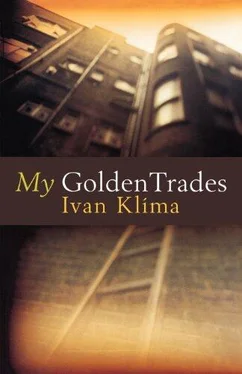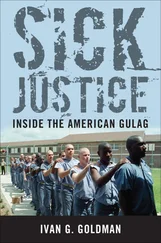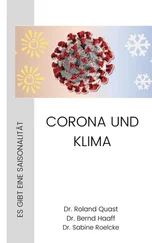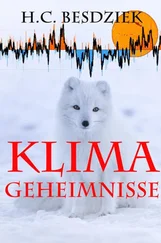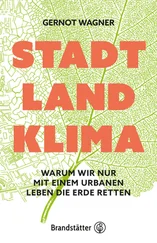Ivan Klima - My Golden Trades
Здесь есть возможность читать онлайн «Ivan Klima - My Golden Trades» весь текст электронной книги совершенно бесплатно (целиком полную версию без сокращений). В некоторых случаях можно слушать аудио, скачать через торрент в формате fb2 и присутствует краткое содержание. Год выпуска: 1998, Издательство: Granta UK, Жанр: Современная проза, на английском языке. Описание произведения, (предисловие) а так же отзывы посетителей доступны на портале библиотеки ЛибКат.
- Название:My Golden Trades
- Автор:
- Издательство:Granta UK
- Жанр:
- Год:1998
- ISBN:нет данных
- Рейтинг книги:4 / 5. Голосов: 1
-
Избранное:Добавить в избранное
- Отзывы:
-
Ваша оценка:
- 80
- 1
- 2
- 3
- 4
- 5
My Golden Trades: краткое содержание, описание и аннотация
Предлагаем к чтению аннотацию, описание, краткое содержание или предисловие (зависит от того, что написал сам автор книги «My Golden Trades»). Если вы не нашли необходимую информацию о книге — напишите в комментариях, мы постараемся отыскать её.
My Golden Trades — читать онлайн бесплатно полную книгу (весь текст) целиком
Ниже представлен текст книги, разбитый по страницам. Система сохранения места последней прочитанной страницы, позволяет с удобством читать онлайн бесплатно книгу «My Golden Trades», без необходимости каждый раз заново искать на чём Вы остановились. Поставьте закладку, и сможете в любой момент перейти на страницу, на которой закончили чтение.
Интервал:
Закладка:
'Now we'll move to another hilltop,' said Kos when we had finished our measuring in the last bit of daylight. 'Then we'll have to use our flashlights.' As soon as he said it, he rushed over to the car and rummaged around in it furiously for a while until he was quite certain that he actually had forgotten the flashlights necessary to illuminate his instruments. So we packed everything into the car again and as we drove back as fast as our four-wheel drive could take us, he muttered over and over again: it had to happen
just now, it's bound to cloud over while we waste valuable time because of his carelessness. It occurred to me that he had deliberately saved this bit of surveying until the last because he too wanted to end the job on a special note.
As far as the clouds were concerned, his worst fears were realized.
At nine-thirty that evening, when we were climbing through a ploughed field with a set of flashlights to the dark hilltop, opaque ridges of altocumulus were reaching out across the sky.
We still had to go down into the valley to place our levelling staff with its lamps. By the time everything was set up, it was close to ten o'clock and not a star was visible in the sky. We both got into the car to wait. It was becoming cold.
At eleven o'clock, the surveyor got out of the car again and scanned the heavens with his binoculars But once more, he could see nothing but cloud cover. He suggested we leave.
I got out of the car too, and felt a light, cool breeze on my face. 'I think it's going to clear up,' I said.
'Do you really think so? Take a look for yourself.' He handed me the binoculars.
Down in the valley, I could see a few lights in a distant village. Then I found an isolated point of light, our will o' the wisp, which we had set up on an abandoned track through the fields. Yet above us, all was darkness, and a dank coldness descended on us from the sky.
'Well, if you say so,' said the surveyor. We returned to the car and listened to some cheerless music on the radio.
At eleven-thirty the surveyor got out of the car, then shouted: 'I must be dreaming!'
The clouds had been swept away and the autumn stars shone so clearly that they almost seemed within reach.
We had to wait until midnight, when the surveyor set his stopwatch to the exact time. Meanwhile, I stuck a candle to the dashboard and prepared the sheets so that I could see them as clearly as possible.
The grass around the car was glistening. It could have been moonlight reflected in drops of dew, or perhaps a thin layer of hoarfrost. The temperature was now below freezing. Hard times were coming for birds, animals and outlaws, who had to find a place to hide. I wrapped my coat tightly about me, and at that moment I seemed to hear a muffled whispering that came from the frozen distances. As I looked down into the valley bathed in moonlight, I could see a small church spire beyond the grey of a cemetery wall. Now I could hear the words. It was a question: is the mortuary my whole world, or has the whole world become a mortuary?
It occurred to me, in fact I was certain, that this was probably the last sentence the old farmer hidden away in the mortuary had written in his notebook. The priest who had found him dead had read the sentence and the gloomy question, a question from the present world, not from the gospel of Christ, had not seemed worth taking a risk for, so he had thrown the notebook into the fire.
I would have liked to have heard more of that message, but the surveyor had begun calling out the first set of numbers and I had to concentrate; a mistake would render our efforts useless. I also had to announce the angle at which he should look for the North Star.
We filled in the last column of figures a few minutes before three in the morning. The surveyor, having stood
hunched over his instrument all that time, was numb with cold, but he seemed contented, even moved, by his achievement.
'You once said,' he recalled, 'that you'd like to look at the stars, or the moon,' and he pointed to the almost completely round lunar sphere in the sky.
So I climbed out of the car, stood behind the theodolite, put my eye to the eyepiece and then pointed the lens in the direction I thought the moon would be.
At any time during the fifty years of my life, I undoubtedly could have gone to an observatory and studied the night sky through a telescope far bigger than this theodolite, but I was glad I hadn't. There are things a person should see at the best possible moment — and perhaps I sensed that one day I would stand here freezing on a cold, windy hilltop at three o'clock in the morning on the last day of our survey and be given a view of the moon, not as an opportunity to be grasped but as a reward.
And so I saw it: the moon as I had known it from books, films and television shots — the craters of Tycho, Copernicus, and Theophilos, the Mare Nubium, the Sea of Darkness and the Sea of Tranquillity, and all those other names, and everything I had known only from grey snapshots — was real and glowing and solid.
Surprised as I was at how this sight transported me, it seemed to me that the longer I looked, the more the lunar landscape resembled a face, a knowing face, a face of reconciliation. Suddenly, I recognized it as the face of my father, and he, from the distance of another world, asked me what I thought.
I had to admit that I liked it, that it was a miracle to look
at the Earth's satellite in close-up.
Do you realize that people have already stood here? he asked.
And I agreed that too was miraculous, just as it was miraculous that people could fly above the earth, look into the heart of matter or say: let there be light, and light will indeed appear. The world you created is a miracle, I thought, just as the consequences of what you have created are so threatening. And even though I fear this world and rebel against it, I do so because I still hope that something of that miracle will survive, although I have no grounds for such hope other than the wish that so much of your effort, so much desire, so many fond and magnanimous dreams would not be utterly in vain.
Afterwards, we put the theodolite back in its case, then we carried all our things back to the car and drove down for the tripod, the light on it still twinkling, vainly luring insects that had long since gone to sleep for the winter.
We reached the farm towards four o'clock. Everyone had gone to bed. The surveyor took me to the room his wife had prepared for me and, before he wished me good night, he said, almost ceremonially: 'I want to thank you for your exemplary assistance.'
He didn't say whether he meant by that my diligent recording of his data, my capacity to stay with him to the end despite frequent exhaustion, or my mysterious ability to look into an overcast sky and predict the weather.
Flags
ON OUR FINAL morning in Meštec I was awakened by a tapping sound over my head. Something was falling on the ceiling, as though someone were pouring gravel on to the attic floor.
'Maybe they've started dismantling the roof,' I thought.
The surveyor rejected my suggestion: the stationery store was still open, and he'd seen Mrs Pokorná relaxing with her canary in the courtyard.
While I was having breakfast, the surveyor, in a suit and tie, went off to the National Committee office to announce that we were leaving, to thank them for providing excellent accommodation free of charge, and to beg them for the almost new stove that still brightened my room and which, Kos was convinced, they would scrap anyway.
From my trunk, I took the figure of the hideous extraterrestrial creature, wrapped it in a newspaper, and went out in front of the building.
Through the glass door of the stationery shop, I could see several customers inside, so I decided to wait. Stepping back a little way into the square, I had a good view of the roof of our building. A large hole had appeared in it from which a man was emerging.
Читать дальшеИнтервал:
Закладка:
Похожие книги на «My Golden Trades»
Представляем Вашему вниманию похожие книги на «My Golden Trades» списком для выбора. Мы отобрали схожую по названию и смыслу литературу в надежде предоставить читателям больше вариантов отыскать новые, интересные, ещё непрочитанные произведения.
Обсуждение, отзывы о книге «My Golden Trades» и просто собственные мнения читателей. Оставьте ваши комментарии, напишите, что Вы думаете о произведении, его смысле или главных героях. Укажите что конкретно понравилось, а что нет, и почему Вы так считаете.
